Can Cats Eat Watermelon?
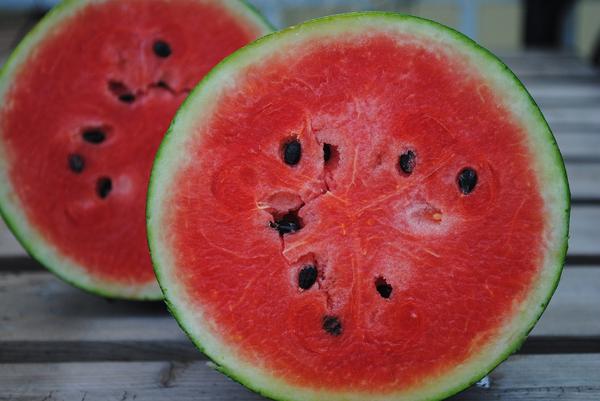
Do you taste that sweet, juicy temptation?
The mouthwatering aroma of summer that entices both you and your feline friend? 🍉
But wait, can cats really eat watermelon?
Don't worry, I've got all the answers.
Keep reading to find out!
Can Cats Eat Watermelon?
Cats can safely eat watermelon after removing the seeds and rind. While it provides hydration and essential nutrients like potassium and vitamin C, it's not a game-changer for their health. Some cats may not be interested, so start with small amounts and prioritize their well-being.
Do you ever wonder if your cat can munch on some juicy watermelon without any issues?
Well, good news!
Cats can totally chow down on watermelon as long as you remove the pesky seeds and rind beforehand.
It's like a little taste adventure for your furry companion. And guess what?
Watermelon is actually quite hydrating and packed with potassium and vitamin C - all the stuff that's good for cats too. 👍
But here's the thing:
Not all cats may be into this summer treat. Just like humans, they have their own preferences.
Some kitties might prefer fish over fruity delights.
Can't blame them, right?
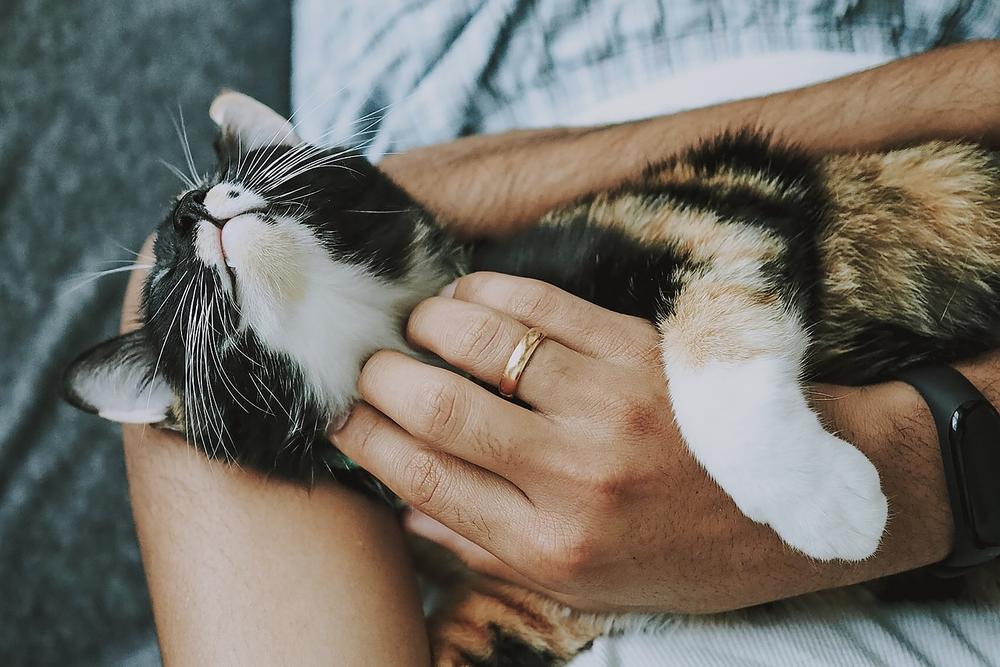
Plus, let's keep it real here.
The health benefits of watermelon aren't mind-blowing for cats.
They won't suddenly get superpowers or become invincible just by munching on some melon.
It's more of a nice little snack option if they're in the mood for it.
So, if you want to give it a try, remember a couple of golden rules.
First up, remove those annoying seeds and rind.
Second, start with small amounts to see how your furry friend reacts.
Sit back and enjoy watching your cat savor new flavors. But hey, always make sure you prioritize their safety and all in all well-being when venturing into culinary experimentation.
Happy munching, my feline-loving pals!
Main points I'll expand upon further down this article:
- Watermelon is not considered to be good for cats.
- It can provide some hydration, potassium, and vitamin C.
- Cats can occasionally sample watermelon if they tolerate it well.
- Watermelon should not replace a meal and seeds should be removed.
- Watermelon should be given in moderate amounts and as an occasional treat.
- Cats do not benefit much from fruits and vegetables.
- Cats may enjoy small treats like bananas and certain hard cheeses.
- Oatmeal, peas, and various vegetables can be introduced slowly.
- Cats are sweet-blind and prefer other foods over watermelon.
- Feeding watermelon to cats can pose health risks, especially for those with diabetes or obesity.
But what does that mean for your furry friend?
Should you be incorporating watermelon into their diet?
Let's dive deeper and explore the pros and cons of feeding watermelon to cats...
Is Watermelon Safe for Cats?
Can cats safely eat watermelon?
Let's find out.
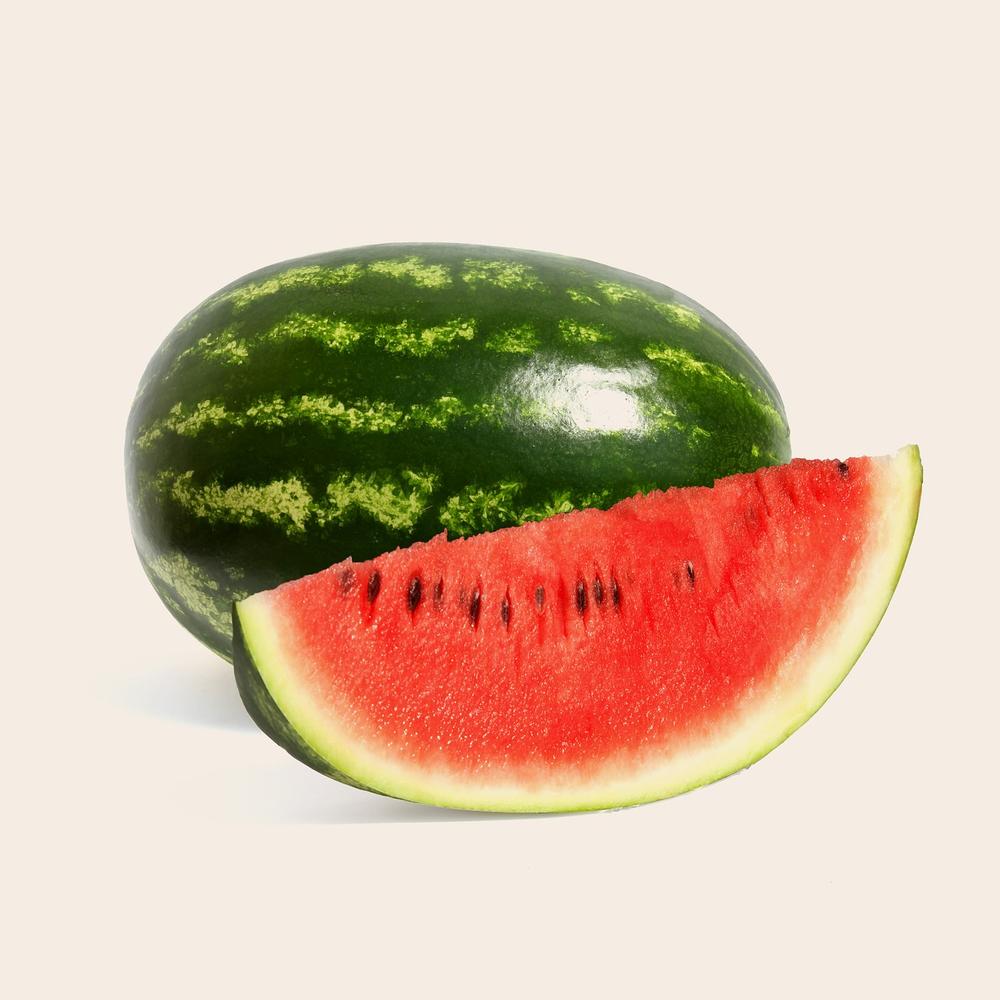
Here's what you need to know:
- Check for any allergies or sensitivities: Just like people, cats can have food allergies. So, if you want to give your cat some watermelon, start with a tiny piece and keep an eye on how they react. If they vomit or have diarrhea, skip the watermelon in the future.
- Keep an eye on the sugar: Watermelon has natural sugars that might not be good for cats with health issues like diabetes or obesity. It's always smart to talk to your vet before adding anything new to your cat's diet.
- No rinds or seeds: Cats can have trouble digesting watermelon rinds, which are tough. The seeds can also cause choking hazards. Remove both before offering watermelon to your furry pal.
- Don't go overboard: While watermelon provides hydration and some nutrients, it should only be an occasional treat. Remember that it shouldn't replace their regular balanced meal.
So, there you have it!
Watermelon can be a refreshing snack for your cat, but ensure you do it in moderation and with care. 😺
And while watermelon can be a refreshing treat for your cat, you have to remember that cats generally do not benefit much from fruits and vegetables.
So, if you're looking for other options to spoil your feline friend, here are some alternatives that they may enjoy!
What Fruits Can Cats Eat?
Fruits and cats?
Not a great combo.
You see, cats are hardcore carnivores.
They don't really get much out of fruits, veggies, or carb-heavy grub.
Meat is their jam, my friend.
Watermelon?
Nah, they wouldn't touch it with a ten-foot pole.
It's like an empty calorie for them.
No real nutritional value.
But there are a few fruits and veggies you can treat your furball to, in moderation and cautiously.
Bananas can be their little snacks.
And who doesn't love a good banana?
Some hard cheeses, like cheddar, they might dig too.
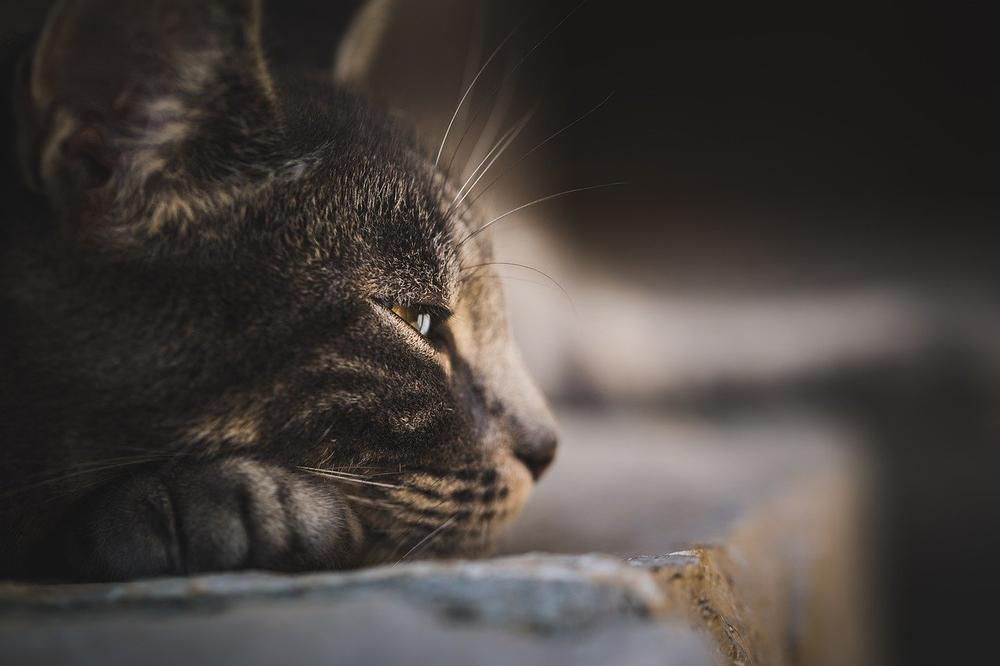
Ever try giving your cat some blueberries?
It could totally make their day.
Especially if it's scorching hot and you freeze those berries.
Yum!
Oatmeal... well, some cats might go for it.
But honestly, others won't give a damn.
Peas (without the pods) can be slowly introduced.
Frozen or raw, worth a shot.
Even though cats don't need carbs, they can still enjoy certain veggies.
Like celery, zucchini, green bell peppers, carrots, peas, spinach, broccoli, and pumpkin.
So yeah, not all fruits and veggies are off-limits for your furry buddy.
But wait, there's one more thing you should know.
If you're curious about whether cats can drink coconut water, you'll want to check out my article Can Cats Drink Coconut Water.
It's a must-read for anyone concerned about their feline friend's hydration and well-being.
What if Your Cat Ate Some Watermelon?
If your cat nibbles on a little watermelon, don't freak out.
Most healthy cats can have some watermelon in moderation.
Just keep these things in mind when giving your kitty watermelon:
- Take off the rind and seeds. They're not easy to digest and could cause tummy problems or be a choking hazard.
- Cut the watermelon into small pieces. This makes it easier for your cat to eat and lowers the risk of choking.
- Give the watermelon a good wash. That way, you remove any dirt or harmful bacteria that might be on it.
- Don't let your cat go overboard with the watermelon. While small amounts are generally safe, too much can upset their tummy because of the high water content and sugars.
Watermelon should be an occasional treat, not a regular part of your cat's diet.
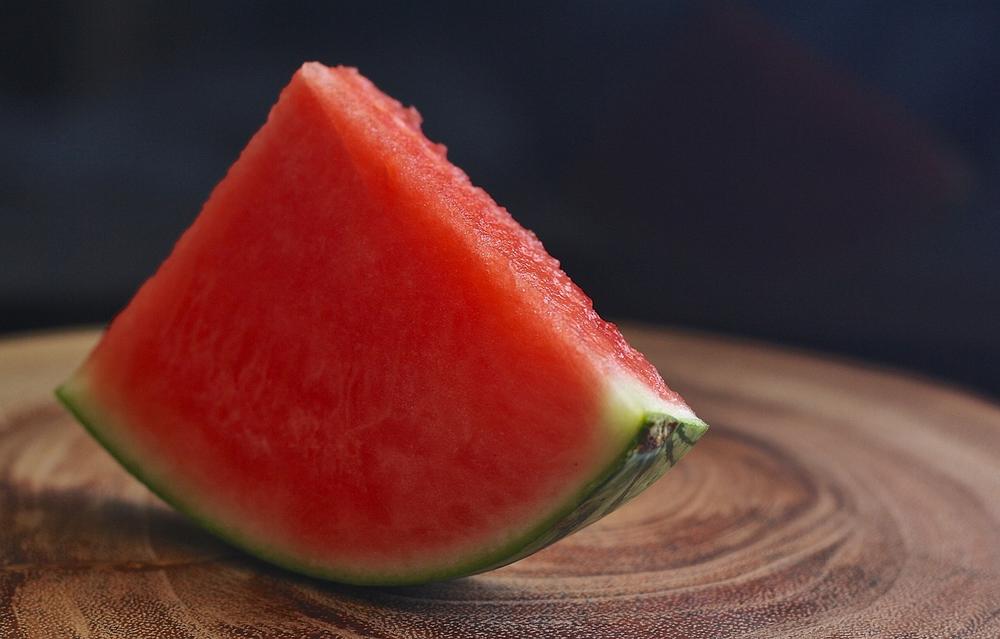
By following these tips, you can share the joy of watermelon with your furry friend worry-free.
Now, you might be wondering...
If cats can't fully taste the sweetness of watermelon, why do they show interest in it?
Well, let's dive into their fascinating taste bud differences and discover what truly intrigues them about this juicy fruit.
Get ready for some surprising insights!
Cats Are “Sweet-Blind” and Cannot Taste Watermelon Like We Can
Cats may show interest in watermelon, but it’s not because they can taste the sweetness.
Here are some fascinating facts about cats and watermelon:
- Cats' taste buds are different from humans', so they are "sweet-blind" and cannot fully appreciate sweet flavors like watermelon.
- When cats show interest in watermelon, it's more likely because they are seeking moisture or enjoying the texture.
- Some cats may be drawn to watermelon due to its high water content, which can help them stay hydrated.
- While cats may find watermelon intriguing, most would still prefer the taste of roasted turkey over a slice of watermelon.
- It's important to remember that cats have specific dietary needs, so it's best to consult with a veterinarian before offering watermelon or any other unfamiliar food to your feline friend.
So, while cats may seem interested in watermelon, it's not for the same reason we enjoy it.
Understanding their unique taste preferences can help us provide the best care for our furry companions.
And now, let's explore the potential health risks that come with feeding watermelon to cats and why it should be done with caution...
Potential Health Risks of Feeding Watermelon to Cats
Watermelon can be dangerous for cats with certain conditions
If your cat has diabetes or struggles with obesity, watermelon may not be a good choice. It has lots of natural sugars that can upset their diabetic control and make their weight problems worse.
Even a little bit of watermelon can cause vomiting or diarrhea in cats with sensitive stomachs.
Make sure to remove the seeds and rind before giving watermelon to your cat.
Those parts are toxic and can cause serious health issues like choking or blockages in their intestines.
Plus, if they eat them, they might get an upset stomach.
While watermelon does offer some nutritional benefits like vitamins A, C, B1, and B6, potassium, magnesium, biotin, antioxidants, protein, fatty acids, carotenoids, and dietary fiber, it shouldn't replace your cat's regular food.
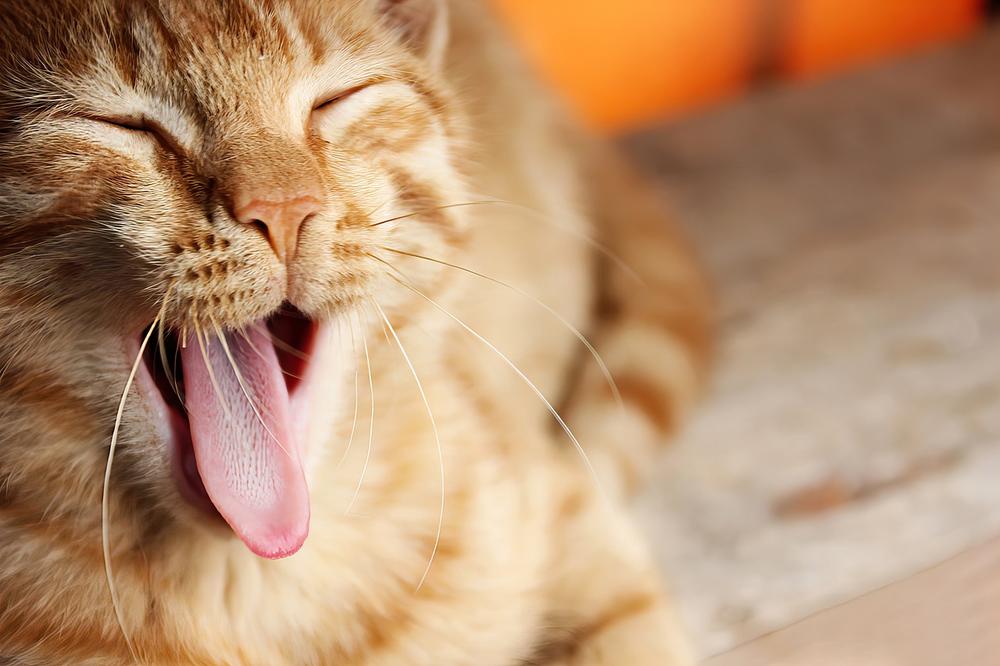
Give watermelon as an occasional treat, not a daily staple.
If your cat has eaten a lot of watermelon seeds or rind or has any existing health problems, it's best to talk to your vet.
They can give you personalized advice based on your cat's needs.
And don't forget, if your cat is lactose intolerant, avoid giving them milk.
While watermelon has nutrients that could help lower blood pressure and prevent cardiovascular disease, milk is not suitable for lactose-intolerant cats.
And while watermelon can have some benefits for cats, you should remember that each cat has different preferences and may not react well to new foods like watermelon.
So, if your cat shows no interest or reacts poorly, respect their taste preferences and stick to their regular diet:
Know Your Cat and Use Common Sense
| Information | Explanation |
|---|---|
| Cat's Taste Preferences | Cats have different taste preferences, so it's important to respect their individual choices. Some cats may enjoy the taste of watermelon while others may not. |
| Watermelon as a Treat | Watermelon can be offered as an occasional treat for cats. However, it should not replace their regular diet of proper cat food, as cats are obligate carnivores and require specific nutrients found in cat food. |
| Supervised Consumption | If you decide to offer watermelon to your cat, it is important to supervise their consumption. Make sure to remove any seeds and rind, as they can be a choking hazard. |
| Allergic Reactions | Just like humans, some cats may have allergies or sensitivities to certain foods. If you notice any signs of an allergic reaction such as vomiting, diarrhea, or changes in behavior, discontinue feeding watermelon to your cat and consult a veterinarian. |
| Moderation is Key | While watermelon can be a refreshing treat, it should be given in moderation. Too much watermelon can cause digestive upset due to its high water content and natural sugars. Offer small, well-chopped pieces as an occasional snack. |
| Individual Cat's Health | Consider your cat's overall health before introducing watermelon to their diet. If your cat has any existing health conditions or dietary restrictions, it's best to consult with a veterinarian to ensure the safety and suitability of feeding watermelon. |
Just like you and me, cats have their own unique preferences.
So if your furry buddy wrinkles their nose at watermelon, it's best to honor their choices.
Cats are natural carnivores, you know.
They require specific nutrients that can only be found in properly formulated cat food.
No need to go offering them just any random food you stumble upon!
I get it, though.
You might be tempted to introduce some new goodies to your feline companion.
Maybe even toss them a watermelon morsel!
And who could blame you?
But here's the thing:
If your little furball shows no interest or reacts negatively to watermelon, you don't want to force it.
We respect these adorable creatures and their taste buds.
Instead of bombarding them with watermelon (which they probably wouldn't even want), ensure their main diet is made up of high-quality cat food. That's what keeps them content, healthy, and purring away.
Sure, experimenting might sound fun, but focus on finding nutritious options that truly meet your cat's needs.
Trust me, they'll appreciate that more than a measly slice of watermelon.
And that wraps up today's article.
If you wish to read more of my useful articles, I recommend you check out some of these: Can Cats Eat Cranberries, Can Cats Eat Pretzels, Can Cats Eat Walnuts, Can Cats Eat Tuna in Oil, and Can Cats Eat Oranges
Talk soon,
-Sarah Davis